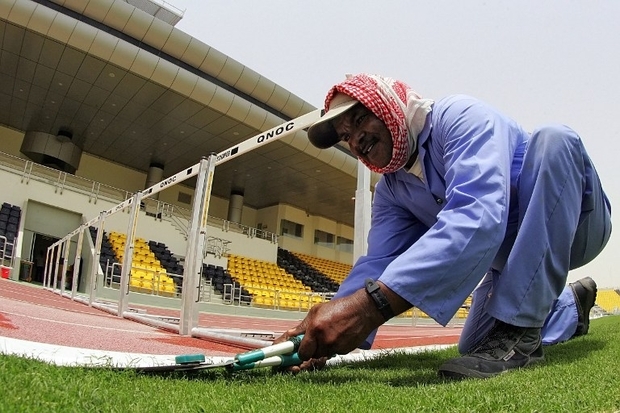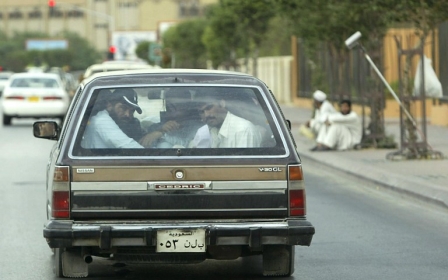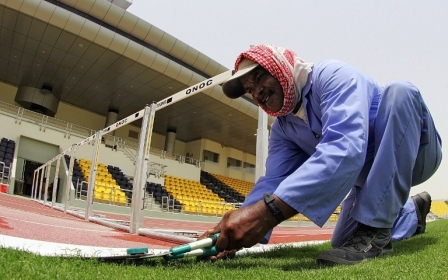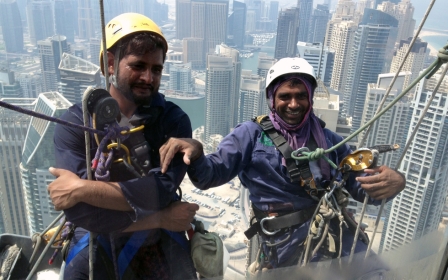FIFA faces lawsuit over Qatar World Cup worker abuse

FIFA is being threatened with court action for its alleged complicity in the mistreatment and "modern slavery" of migrant workers in working on Qatar's World Cup 2022 projects.
The Netherlands Trade Union Confederation (FNV) has threatened to lodge a case on behalf of a Bangladeshi migrant worker Nadim Sharaful Alam.
The lawsuit would be the first of its kind and, if successful, could pave the way for hundreds of migrant workers to sue the football governing body for its alleged complicity in the abuse of migrant workers.
In a letter to FIFA, the FNV described the plight of migrant workers directly involved in the building industry in Qatar as "modern slavery".
The letter does not expand further on Alam's situation, saying only that his "rights were violated" in Qatar between 2014 and 2016.
The FNV said the matter would be filed with a court in three weeks unless Alam is paid compensation and FIFA accepts responsibility. The case will be lodged in Switzerland, where FIFA is headquartered.
The letter also calls for the abolition of the Kafala system, a Qatari employee law which allows employers to hold workers' passports and refuse their requests to leave the country.
FIFA has faced a barrage of criticism over the plight of migrant workers in Qatar.
The body says it has no responsibility for wider "societal problems" in a host country, but that it is doing everything in its power for the Qatari tournament to be a "catalyst for change".
Earlier this year, Amnesty International published a report calling on FIFA to use its influence to address the plight of migrant workers in Qatar.
In its report, Amnesty identified more than 100 migrant workers employed on the Khalifa stadium who were being subjected to human rights abuses by companies contracted to complete the stadium.
Migrant workers comprise more than 90 percent of Qatar's workforce and come mainly from South Asia.
Every migrant worker working in Qatar must have a "sponsor", who must also be their employer, under a process known as the "Kafala system".
The Kafala system, which has faced heavy criticism from Amnesty, also states that a migrant worker must seek their employer's permission to leave the country or change jobs.
If a sponsor withdraws its sponsorship, migrant workers can be deported at any time, without any process being made available to challange their deportation.
Qatar had announced plans to reform the Kafala system but critics claim the reforms were not good enough.
The Qataris after heavy criticism also built improved accommodation for workers working directly on stadium developments, but for the vast majority of workers on related infrastructure projects conditions remain squalid.
New MEE newsletter: Jerusalem Dispatch
Sign up to get the latest insights and analysis on Israel-Palestine, alongside Turkey Unpacked and other MEE newsletters
Middle East Eye delivers independent and unrivalled coverage and analysis of the Middle East, North Africa and beyond. To learn more about republishing this content and the associated fees, please fill out this form. More about MEE can be found here.




